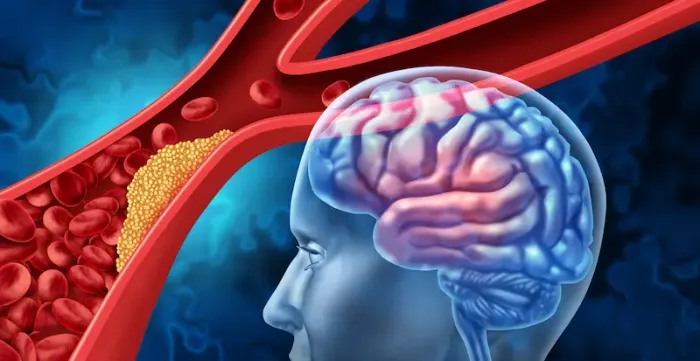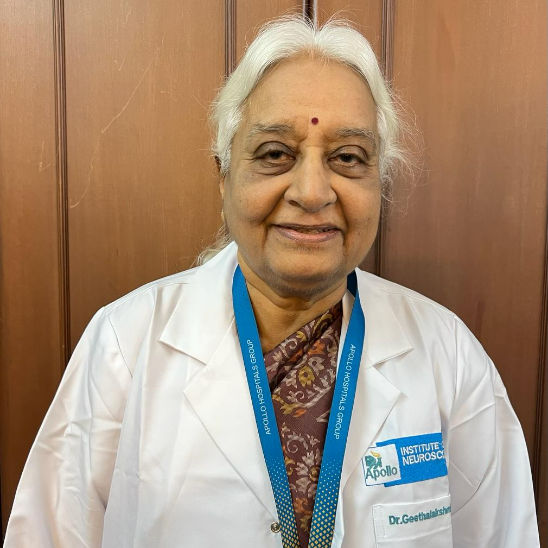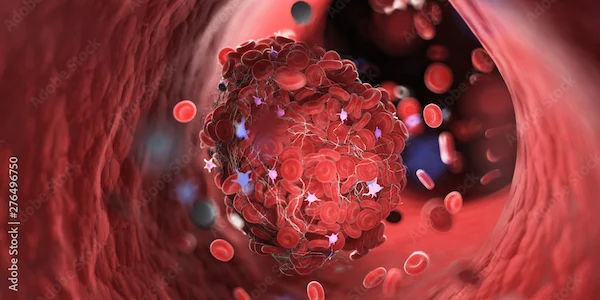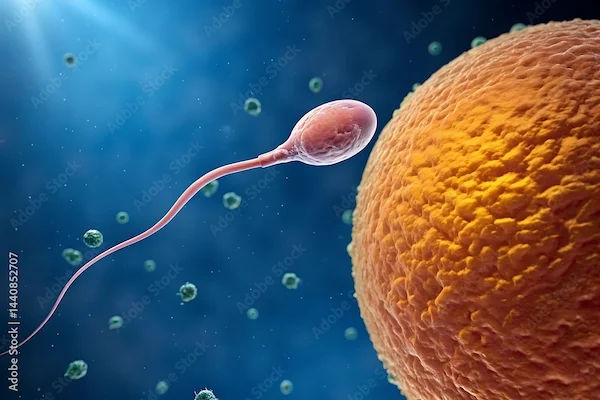Brain Aneurysm Symptoms, Causes, and Treatment
Know about brain aneurysm, symptoms, causes, diagnosis and treatment options. Learn how to alter your lifestyle, habits for better health.

Written by Dr. Dhankecha Mayank Dineshbhai
Reviewed by Dr. Rohinipriyanka Pondugula MBBS
Last updated on 22nd Aug, 2025

Brain Aneurysm Symptoms, Causes, and Treatment
Introduction
A brain aneurysm is a serious medical condition that can be life-threatening if not detected and treated early. If you or anyone is concerned about brain aneurysms, understanding the symptoms, causes, and treatment options can help you take the right steps toward better health.
What Is a Brain Aneurysm?
A brain aneurysm, also called a cerebral aneurysm, is a weak, bulging spot in a blood vessel in the brain. Think of it like a balloon that forms on a weak part of a hose; it can grow over time and may eventually burst, leading to a hemorrhagic stroke.
While not all aneurysms rupture, a ruptured aneurysm is a medical emergency that requires immediate attention.
Consult a Neurologist for Personalised Advice
Symptoms of a Brain Aneurysm
1. Loss of consciousness
2. Unruptured Aneurysm Symptoms
Many brain aneurysms don’t cause symptoms unless they grow large or press on nerves. However, some warning signs may include:
• Severe headache (often described as the "worst headache of your life")
• Blurred or double vision
• Pain behind or above one eye
• Dilated pupil in one eye
• Numbness or weakness on one side of the face
• Difficulty speaking or understanding speech
3. Ruptured Aneurysm Symptoms
If an aneurysm bursts, symptoms appear suddenly and can be life-threatening. These include:
• Sudden, excruciating headache
• Nausea and vomiting
• Stiff neck
• Sensitivity to light
• Seizures
If you or someone experiences these symptoms, seek emergency medical help immediately.
What Causes a Brain Aneurysm?
The exact cause of brain aneurysms isn’t always clear, but several factors can increase the risk:
1. High Blood Pressure (Hypertension)
Chronic high blood pressure weakens blood vessel walls, making them more prone to bulging.
2. Smoking
Tobacco use damages blood vessels and increases the risk of aneurysm formation and rupture.
3. Family History
If a close relative (parent, sibling) had a brain aneurysm, your risk may be higher.
4. Age & Gender
Aneurysms are more common in people over 40, and women are slightly more at risk than men.
5. Head Trauma or Infections
In rare cases, injuries or infections affecting brain blood vessels can lead to aneurysms.
How Is a Brain Aneurysm Diagnosed?
If a doctor suspects an aneurysm, they may recommend:
• CT Scan or MRI – Imaging tests to detect aneurysms.
• Cerebral Angiogram – A detailed X-ray of the brain's blood vessels.
• Lumbar Puncture (Spinal Tap) – If a rupture is suspected, this test checks for blood in spinal fluid.
Early detection can prevent serious complications, so if you have risk factors, consult a neurologist.
Treatment Options for Brain Aneurysm
Treatment depends on the aneurysm’s size, location, and whether it has ruptured.
1. Monitoring (for Small, Unruptured Aneurysms)
If the aneurysm is small and not causing symptoms, doctors may monitor it with regular imaging tests.
2. Surgical Clipping
A neurosurgeon places a tiny metal clip at the aneurysm’s base to stop blood flow and prevent rupture.
3. Endovascular Coiling
A less invasive procedure where a catheter is used to insert tiny platinum coils into the aneurysm, blocking blood flow and reducing rupture risk.
4. Flow Diverters
A stent-like device is placed to redirect blood flow away from the aneurysm, allowing it to heal.
How to Reduce Your Risk of a Brain Aneurysm?
While some risk factors (like genetics) can’t be changed, you can take steps to lower your risk:
• Control Blood Pressure – Monitor and manage hypertension with diet, exercise, and medication if needed.
• Quit Smoking – Smoking damages blood vessels; quitting reduces aneurysm risk.
• Limit Alcohol – Excessive drinking can raise blood pressure.
• Eat a Heart-Healthy Diet – Focus on fruits, vegetables, whole grains, and lean proteins.
• Exercise Regularly – Moderate activity improves circulation and heart health.
When to See a Doctor?
If you experience:
• Sudden, severe headaches
• Vision changes
• Unexplained dizziness or confusion
Final Thoughts
Brain Aneurysm is a serious life condition that can be life-threatening if not treated promptly. The symptoms include stiff neck, severe headache, etc. It is caused due to family history, age, and trauma. Opting for diagnosis and the best treatment will help in recovery. Altering lifestyle, like keeping blood pressure in check and quitting smoking, can help. Visit your doctor for any medical advice.
Consult a Neurologist for Personalised Advice
Consult a Neurologist for Personalised Advice

Dr. Aditendraditya Singh Bhati
Neurosurgeon
18 Years • MBBS(2004), DNB Neurosurgery(2014); MNAMS; Fellow Neuroendoscopy
Delhi
Apollo Hospitals Indraprastha, Delhi
(100+ Patients)

Dr. Ganeshgouda Majigoudra
Neurologist
10 Years • MBBS, MD ( GENERAL MEDICINE) DM (NEUROLOGY)
Bengaluru
Apollo Clinic, JP nagar, Bengaluru

Dr. Sarthak Mehta
Neurologist
6 Years • MBBS , MS Mch ( Neuro )
Bengaluru
Apollo Clinic, JP nagar, Bengaluru

Dr. E Prabhakar Sastry
General Physician/ Internal Medicine Specialist
40 Years • MD(Internal Medicine)
Manikonda Jagir
Apollo Clinic, Manikonda, Manikonda Jagir
(125+ Patients)

Dr. Geetha Lakshmipathy
Neurologist
34 Years • MBBS, MD (General Medicine), DM (Neuro)
Chennai
Apollo Hospitals Greams Road, Chennai
(450+ Patients)
Consult a Neurologist for Personalised Advice

Dr. Aditendraditya Singh Bhati
Neurosurgeon
18 Years • MBBS(2004), DNB Neurosurgery(2014); MNAMS; Fellow Neuroendoscopy
Delhi
Apollo Hospitals Indraprastha, Delhi
(100+ Patients)

Dr. Ganeshgouda Majigoudra
Neurologist
10 Years • MBBS, MD ( GENERAL MEDICINE) DM (NEUROLOGY)
Bengaluru
Apollo Clinic, JP nagar, Bengaluru

Dr. Sarthak Mehta
Neurologist
6 Years • MBBS , MS Mch ( Neuro )
Bengaluru
Apollo Clinic, JP nagar, Bengaluru

Dr. E Prabhakar Sastry
General Physician/ Internal Medicine Specialist
40 Years • MD(Internal Medicine)
Manikonda Jagir
Apollo Clinic, Manikonda, Manikonda Jagir
(125+ Patients)

Dr. Geetha Lakshmipathy
Neurologist
34 Years • MBBS, MD (General Medicine), DM (Neuro)
Chennai
Apollo Hospitals Greams Road, Chennai
(450+ Patients)




